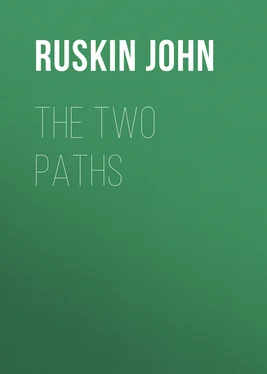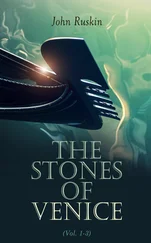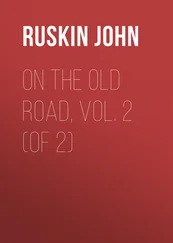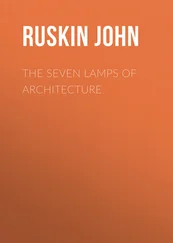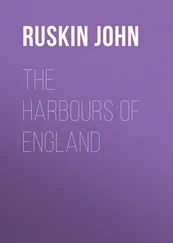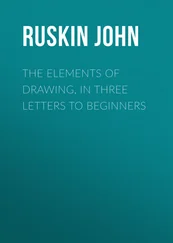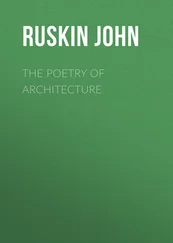John Ruskin - The Two Paths
Здесь есть возможность читать онлайн «John Ruskin - The Two Paths» — ознакомительный отрывок электронной книги совершенно бесплатно, а после прочтения отрывка купить полную версию. В некоторых случаях можно слушать аудио, скачать через торрент в формате fb2 и присутствует краткое содержание. Жанр: foreign_antique, foreign_home, architecture_book, literature_19, visual_arts, на английском языке. Описание произведения, (предисловие) а так же отзывы посетителей доступны на портале библиотеки ЛибКат.
- Название:The Two Paths
- Автор:
- Жанр:
- Год:неизвестен
- ISBN:нет данных
- Рейтинг книги:4 / 5. Голосов: 1
-
Избранное:Добавить в избранное
- Отзывы:
-
Ваша оценка:
- 80
- 1
- 2
- 3
- 4
- 5
The Two Paths: краткое содержание, описание и аннотация
Предлагаем к чтению аннотацию, описание, краткое содержание или предисловие (зависит от того, что написал сам автор книги «The Two Paths»). Если вы не нашли необходимую информацию о книге — напишите в комментариях, мы постараемся отыскать её.
The Two Paths — читать онлайн ознакомительный отрывок
Ниже представлен текст книги, разбитый по страницам. Система сохранения места последней прочитанной страницы, позволяет с удобством читать онлайн бесплатно книгу «The Two Paths», без необходимости каждый раз заново искать на чём Вы остановились. Поставьте закладку, и сможете в любой момент перейти на страницу, на которой закончили чтение.
Интервал:
Закладка:
To return, then, to the first point of difficulty, the relations between art and mental disposition in India and Scotland. It is quite true that the art of India is delicate and refined. But it has one curious character distinguishing it from all other art of equal merit in design— it never represents a natural fact . It either forms its compositions out of meaningless fragments of colour and flowings of line; or if it represents any living creature, it represents that creature under some distorted and monstrous form. To all the facts and forms of nature it wilfully and resolutely opposes itself; it will not draw a man, but an eight-armed monster; it will not draw a flower, but only a spiral or a zigzag.
It thus indicates that the people who practise it are cut off from all possible sources of healthy knowledge or natural delight; that they have wilfully sealed up and put aside the entire volume of the world, and have got nothing to read, nothing to dwell upon, but that imagination of the thoughts of their hearts, of which we are told that "it is only evil continually." Over the whole spectacle of creation they have thrown a veil in which there is no rent. For them no star peeps through the blanket of the dark—for them neither their heaven shines nor their mountains rise—for them the flowers do not blossom— for them the creatures of field and forest do not live. They lie bound in the dungeon of their own corruption, encompassed only by doleful phantoms, or by spectral vacancy.
Need I remind you what an exact reverse of this condition of mind, as respects the observance of nature, is presented by the people whom we have just been led to contemplate in contrast with the Indian race? You will find upon reflection, that all the highest points of the Scottish character are connected with impressions derived straight from the natural scenery of their country. No nation has ever before shown, in the general tone of its language—in the general current of its literature—so constant a habit of hallowing its passions and confirming its principles by direct association with the charm, or power, of nature. The writings of Scott and Burns—and yet more, of the far greater poets than Burns who gave Scotland her traditional ballads,—furnish you in every stanza—almost in every line—with examples of this association of natural scenery with the passions; [Footnote: The great poets of Scotland, like the great poets of all other countries, never write dissolutely, either in matter or method; but with stern and measured meaning in every syllable. Here's a bit of first-rate work for example:
"Tweed said to Till,
'What gars ye rin sae still?'
Till said to Tweed,
'Though ye rin wi' speed,
And I rin slaw,
Whar ye droon ae man,
I droon twa.'"]
but an instance of its farther connection with moral principle struck me forcibly just at the time when I was most lamenting the absence of art among the people. In one of the loneliest districts of Scotland, where the peat cottages are darkest, just at the western foot of that great mass of the Grampians which encircles the sources of the Spey and the Dee, the main road which traverses the chain winds round the foot of a broken rock called Crag, or Craig Ellachie. There is nothing remarkable in either its height or form; it is darkened with a few scattered pines, and touched along its summit with a flush of heather; but it constitutes a kind of headland, or leading promontory, in the group of hills to which it belongs—a sort of initial letter of the mountains; and thus stands in the mind of the inhabitants of the district, the Clan Grant, for a type of their country, and of the influence of that country upon themselves. Their sense of this is beautifully indicated in the war-cry of the clan, "Stand fast, Craig Ellachie." You may think long over those few words without exhausting the deep wells of feeling and thought contained in them—the love of the native land, the assurance of their faithfulness to it; the subdued and gentle assertion of indomitable courage—I may need to be told to stand, but, if I do, Craig Ellachie does. You could not but have felt, had you passed beneath it at the time when so many of England's dearest children were being defended by the strength of heart of men born at its foot, how often among the delicate Indian palaces, whose marble was pallid with horror, and whose vermilion was darkened with blood, the remembrance of its rough grey rocks and purple heaths must have risen before the sight of the Highland soldier; how often the hailing of the shot and the shriek of battle would pass away from his hearing, and leave only the whisper of the old pine branches—"Stand fast, Craig Ellachie!"
You have, in these two nations, seen in direct opposition the effects on moral sentiment of art without nature, and of nature without art. And you see enough to justify you in suspecting—while, if you choose to investigate the subject more deeply and with other examples, you will find enough to justify you in concluding —that art, followed as such, and for its own sake, irrespective of the interpretation of nature by it, is destructive of whatever is best and noblest in humanity; but that nature, however simply observed, or imperfectly known, is, in the degree of the affection felt for it, protective and helpful to all that is noblest in humanity.
You might then conclude farther, that art, so far as it was devoted to the record or the interpretation of nature, would be helpful and ennobling also.
And you would conclude this with perfect truth. Let me repeat the assertion distinctly and solemnly, as the first that I am permitted to make in this building, devoted in a way so new and so admirable to the service of the art-students of England—Wherever art is practised for its own sake, and the delight of the workman is in what he does and produces , instead of what he interprets or exhibits , —there art has an influence of the most fatal kind on brain and heart, and it issues, if long so pursued, in the destruction both of intellectual power and moral principal ; whereas art, devoted humbly and self- forgetfully to the clear statement and record of the facts of the universe, is always helpful and beneficent to mankind, full of comfort, strength, and salvation.
Now, when you were once well assured of this, you might logically infer another thing, namely, that when Art was occupied in the function in which she was serviceable, she would herself be strengthened by the service, and when she was doing what Providence without doubt intended her to do, she would gain in vitality and dignity just as she advanced in usefulness. On the other hand, you might gather, that when her agency was distorted to the deception or degradation of mankind, she would herself be equally misled and degraded—that she would be checked in advance, or precipitated in decline.
And this is the truth also; and holding this clue you will easily and justly interpret the phenomena of history. So long as Art is steady in the contemplation and exhibition of natural facts, so long she herself lives and grows; and in her own life and growth partly implies, partly secures, that of the nation in the midst of which she is practised. But a time has always hitherto come, in which, having thus reached a singular perfection, she begins to contemplate that perfection, and to imitate it, and deduce rules and forms from it; and thus to forget her duty and ministry as the interpreter and discoverer of Truth. And in the very instant when this diversion of her purpose and forgetfulness of her function take place—forgetfulness generally coincident with her apparent perfection—in that instant, I say, begins her actual catastrophe; and by her own fall—so far as she has influence—she accelerates the ruin of the nation by which she is practised.
Читать дальшеИнтервал:
Закладка:
Похожие книги на «The Two Paths»
Представляем Вашему вниманию похожие книги на «The Two Paths» списком для выбора. Мы отобрали схожую по названию и смыслу литературу в надежде предоставить читателям больше вариантов отыскать новые, интересные, ещё непрочитанные произведения.
Обсуждение, отзывы о книге «The Two Paths» и просто собственные мнения читателей. Оставьте ваши комментарии, напишите, что Вы думаете о произведении, его смысле или главных героях. Укажите что конкретно понравилось, а что нет, и почему Вы так считаете.
